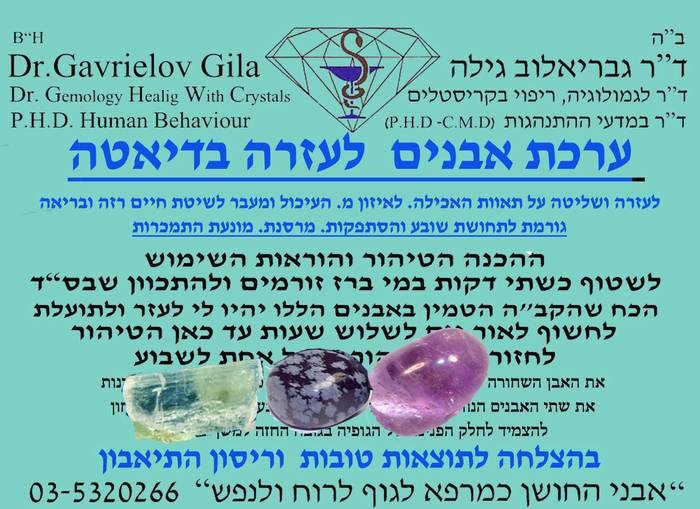
Can Do
Can-Do People can be great to be around. They are upbeat and can give you the feeling that anything is possible. They can make life seem worth living, and they tend to...

Everyone deals with life’s obstacles differently, but almost all of the approaches can be broken down into two groups: can do, and no can do. Can-Do People can be great to be around. They are upbeat and can give you the feeling that anything is possible. They can make life seem worth living, and they tend to bring the best out in other people. They are simply inspiring.
No-Can-Do People usually accomplish the opposite. They are no ray of hope in the darkness of night; indeed, they can be that darkness of night, often making others feel like nothing is possible and that evil lurks in every shadow waiting to pounce at the first moment one lets his guard down. If they make us feel better about ourselves it is only because we may be happy to not be them — though we often can be.
Yosef was a Can-Do person. As such, he was a magnet for others seeking to feel alive, yearning to feel whole. This energy that Yosef exuded that was part-and-parcel with his attitude of life has a name: chayn
- A son of chayn is Yosef … (Rashi, Bereishit 49:22)
- Chayn is a Hebrew word made up of two letters — Chet-Nun — and containing a very powerful message:
A good name is more choice than great riches, and beneficent chayn more than silver and gold. (Mishlei 22:1)
In Kabbalah, the number eight, corresponding to the letter Chet, and the number fifty, corresponding to the letter Nun, represent the same concept, but on different planes. The number seven represents the idea of the natural, physical world, because that is the amount of days in which God made physical Creation.[i] Therefore, eight — Chet — represents the super-natural, going beyond the physical limitations of Creation.[ii]
Fifty is one more than forty-nine, the product of seven times seven.[iii] Therefore, like the number eight it represents rising above the limitations of the physical plane. And, just as the eighth sefirah from the bottom is Binah, one of the levels of Eternity, so too is fifty associated with the sefirah of Binah, as in the Nun Sha’arei Binah — the Fifty Gates of Understanding with which the world was created (Rosh Hashanah 21b).
Thus, people who project chayn project eternity. The good feeling that we have in their presence is our own sense of being unlimited. It is always there. It just gets covered over by the confusion that results from living in a world that emphasizes the physical.[iv] People with chayn make us feel as if we are complete, at least while we are in their presence.
This is the basis of such rabbinical teachings as:
- Who is a wealthy person? One who is content with his portion. (Pirkei Avot 4:1)
- All is for the good. (Brochot 61a)
From the vantage point of the soul, this is completely true. It is the body that feels physical lack, that sees negativity in the world. The only thing that saddens the soul, so-to-speak, is giving up on the possibility to be more than we are, to capitulate to the body’s sense of being limited. This is what makes life seem so mundane and in need of superficial stimulation and distraction.
This is why a very important trait of a Can-Do, chayn-generating person is gratitude. Everyone knows how important it is to be grateful for the blessings we have in life, and yet few people feel gratitude on a daily basis or realize all their blessings. If positivity is the attitude that makes life wonderful and productive, then gratitude is the fuel that keeps it alive and going.
In fact, it is remarkable how easily life can go from being negative to positive just by taking note of one’s blessings. It is awesome how inspired a person can become when he realizes how much he already has, as opposed to how much he lacks, or thinks he lacks.
“I was feeling down so I went to a class on the Torah approach to happiness. The young rabbi spoke well, and he was quite interesting, but when you’re not into something it is hard to take it seriously. He spoke about what he called ‘The Happiness Game’, which he said was a powerful tool for getting out of sad moods and staying upbeat. ‘All you have to do,’ he said with conviction, ‘is make a continuous list of your blessings that you add to each day, starting with the most obvious things in life, like your eyes, for example, and then your nose, etc. … because for everything you have there are people who don’t, so they count as blessings. And you keep adding to the list every time you can think of something for which to be grateful, even if it seems so obvious to you. There is some kind of psychological thing,’ he explained, ‘about seeing so many blessings on a single page or in a single book. It just lifts you,’ he finished. Personally, I didn’t think his little psychology game had much merit, at least not for me, so after the class I just forgot all about it. But, my situation worsened, and over the weeks I became more desperate for anything to lighten my mood. So, just to say I tried everything, I started playing his ‘Happiness Game’ and to my utter surprise it began to work for me instantly … and it just kept getting better. Even when I wasn’t adding to the list I felt the comfort of my blessings everywhere I went. When bad thoughts came to me to bring me down, remembering my list would lift me up again. I had great pleasure just reviewing the list over a cup of coffee, and it never got boring. There is this magical effect that keeps it alive and real for me, as if my emotions have a soft spot for it or something. After a while, I stopped adding to the list because the list became me. I may have forgotten many of the items, but I always feel as if I have everything to be grateful for, and feel no threat of depression anymore. And, I can always review the list …”
To be continued
* * *
[i] The Kabbalistic reason for this is because physical Creation was made from the seven lowest sefirot of Chesed through Malchut, after thy “broke” and were repaired when God made Creation. The eighth sefirah from the bottom, Binah, was unaffected by Shevirat HaKeilim — the “Breaking of the Vessels” — and is therefore far more spiritual.
[ii] As Chanukah, the eight-day holiday in Kislev reminds us, as does Brit Milah which takes place on the eighth day after the baby is born.
[iii] The concept of physicality on a two-dimensional plane.
[iv] And thanks to Marketing and Advertising, from constantly feeling a sense of physical lack and physical need.
***
Pinchas Winston is the author of over 95 books on various topics that deal with current issues from a traditional Jewish perspective. He has also written on the weekly Torah reading since 1993, called “Perceptions”, as well as on current topics and trends affecting Jewish history, past and present. One of his missions is to make the depth and beauty of the more mystical teachings of Torah understandable and accessible to those who can really benefit from them. Visit his website at thirtysix.org.












10/26/2020
sss